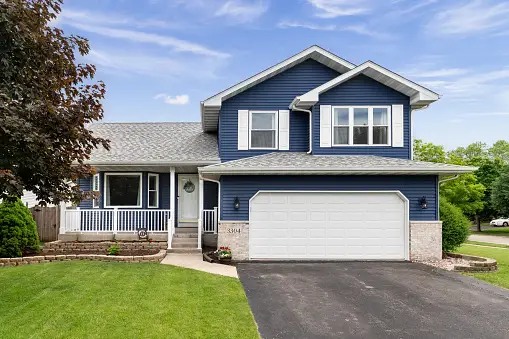
Pre-foreclosure is a term that often elicits anxiety and uncertainty in homeowners facing financial difficulties in [Market City]. It is a critical juncture in the foreclosure process and can have significant consequences for homeowners, lenders, and the local real estate market. In this comprehensive guide, we will delve into the concept of pre-foreclosure in [Market City], exploring what it means, the factors contributing to it, and the options available to homeowners in this challenging situation.
What is Pre-Foreclosure?
Pre-foreclosure is the stage in the foreclosure process that occurs when a homeowner has fallen behind on their mortgage payments, but the property has not yet been repossessed by the lender. During this period, the homeowner is in danger of losing their property, but there is still an opportunity to remedy the situation and avoid foreclosure.
Factors Contributing to Pre-Foreclosure in [Market City]
Several factors can contribute to pre-foreclosure in [Market City], just as they can in any real estate market. Understanding these factors is crucial for homeowners who may find themselves in this situation:
- Job Loss or Income Reduction: Losing a job or experiencing a significant reduction in income can be a severe blow to a homeowner’s finances. When a steady source of income is suddenly disrupted, it can become challenging to keep up with mortgage payments.
- Medical Emergencies: Unexpected medical expenses, especially in cases where insurance coverage is insufficient, can strain a homeowner’s budget. These expenses might include hospital bills, surgeries, or ongoing treatments.
- Divorce or Separation: The financial implications of divorce or separation can be substantial. Splitting assets and maintaining separate households can often make it difficult for one or both parties to afford the mortgage on their own.
- Adjustable-Rate Mortgages (ARMs): Homeowners with adjustable-rate mortgages may find their monthly payments increasing when interest rates rise. This adjustment can lead to higher mortgage costs, making it harder to meet monthly obligations.
- Property Depreciation: A declining real estate market in [Market City] can affect property values. When property values drop, homeowners may struggle to refinance or sell their homes for an amount that covers their mortgage debt. This can leave them in a precarious financial situation.
- Excessive Debt: Accumulating excessive personal debt can strain finances and make it challenging for homeowners to prioritize their mortgage payments. High credit card debt, personal loans, or other financial obligations can lead to financial distress.
Options for Homeowners in Pre-Foreclosure:
- Loan Modification: A loan modification involves negotiating with the lender to change the terms of the mortgage. This can include extending the loan term, reducing the interest rate, or adding missed payments to the end of the loan. The goal is to make the monthly payments more manageable for the homeowner.
- Short Sale: In a short sale, the homeowner, with the lender’s approval, sells the property for less than the remaining mortgage balance. While the homeowner loses the property, it prevents foreclosure and its associated credit implications.
- Refinancing: If a homeowner has maintained good credit and has sufficient equity in their home, they may be eligible to refinance their mortgage at a lower interest rate. This can reduce monthly payments and make them more affordable.
- Repayment Plan: Lenders may offer homeowners a repayment plan, allowing them to catch up on missed payments gradually while continuing to make regular mortgage payments. This can provide a feasible way to resolve the delinquency.
- Selling the Property: If the homeowner decides to sell the property voluntarily, they can work with a real estate agent to list it for sale. The proceeds from the sale can be used to pay off the mortgage, avoiding foreclosure.
- Bankruptcy: While generally considered a last resort, filing for bankruptcy can provide homeowners with temporary relief from foreclosure proceedings. It can also allow them to reorganize their finances and potentially retain their home if they meet certain criteria.
Legal Protections for Homeowners:
- Notice of Default: Lenders are typically required to send a Notice of Default to homeowners in pre-foreclosure, notifying them of missed payments and providing a grace period within which they can rectify the default.
- Mediation Programs: Some states or localities offer mediation programs that allow homeowners to work with their lenders to find alternatives to foreclosure. Mediation can provide an opportunity for negotiation and resolution.
- Right to Redemption: In certain situations, homeowners may have the right to redeem their property by paying off the entire mortgage balance, along with associated fees and costs, up to a specific point in the foreclosure process. This allows homeowners a chance to reclaim their property if they can come up with the required funds.
Impact on the Real Estate Market
Pre-foreclosures can have a significant impact on the [Market City] real estate market. When a significant number of properties are in pre-foreclosure, it can lead to:
- Lower Property Values: The presence of pre-foreclosure properties in the market can put downward pressure on property values, as distressed sales often sell at a discount.
- Increased Inventory: Pre-foreclosures can contribute to an increase in the number of homes available for sale, potentially leading to longer days on the market.
- Neighborhood Stability: A high concentration of pre-foreclosures can negatively affect the stability and overall appeal of a neighborhood.
Conclusion
Pre-foreclosure is a challenging and often distressing situation for homeowners in [Market City]. However, it’s important to remember that there are options available to address this issue. Seeking early intervention and exploring various alternatives can help homeowners avoid foreclosure and protect their investment.
If you find yourself in pre-foreclosure, it’s crucial to reach out to a qualified attorney, housing counselor, or financial advisor who can provide guidance tailored to your specific situation. Additionally, staying informed about your rights and the legal protections available in [Market City] is essential to making informed decisions during this difficult time.

